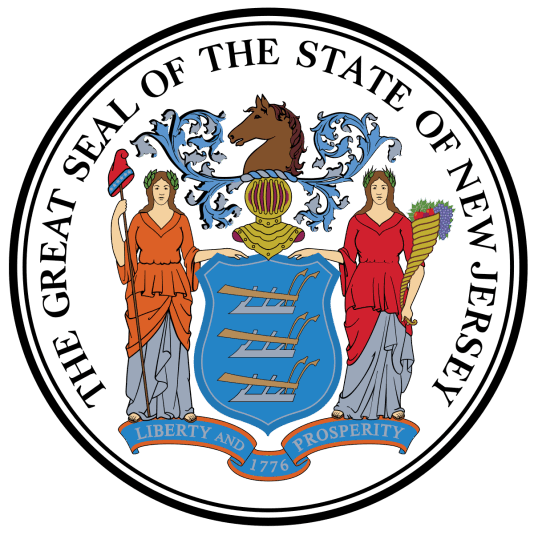April 9, 2020
Dear New Jersey Wildlife Rehabilitator:
As you may be aware, there are concerns about the potential risks of transmitting COVID-19 to bats. North American bats are not the source of the current COVID-19 / SARS-CoV-2 virus and it is not yet known if they can carry the virus. New Jersey Division of Fish and Wildlife and other wildlife agencies across the country are concerned that possible introduction of this virus into our native bat populations may further threaten the health of these bats, at a time when so many have already suffered the devastating effects of White-nose Syndrome. We ask that you adhere to the following precautions and guidance when dealing with bats.
The U.S. Fish and Wildlife Service, USGS National Wildlife Health Center, and a team of wildlife disease experts are collaborating on a rapid risk assessment and potential reverse zoonosis of COVID-19 to other wildlife, including bats, and will release their updated recommendations as soon as evidence-based guidance is available. In the meantime, it is recommended to temporarily postpone activities requiring direct contact with bats. This means, where practicable, refrain from any direct handling of bats and refrain from taking in any new bats for rehabilitation. Please continue to hold onto any bats currently in your care, and do not release any bats until further notice. For bats currently in your care, follow increased sanitation and quarantine practices, including frequently washing any items used on bats, keeping bats away from anyone feeling ill or who has been exposed to COVID-19, disinfecting surfaces frequently touched by people, and wearing proper personal protective equipment (PPE) including gloves, respirator or mask, and a change of clothes and shoes if handling bats to prevent possible transmission. The USGS National Wildlife Health Center recommendations for PPE are outlined in the attached Bulletin.
When speaking to the public, please advise people that if a bat is not visibly injured, it should be left as found. If it is grounded, the bat can be moved to a nearby tree, shrub, or other climbable shelter object without having direct contact with the bat. If the bat is a pup, the mother is likely close by and may return for it. If a bat is visibly injured, the public can contact their local animal control officer who may collect it. Injured bats can be humanely euthanized by those qualified to do so (wildlife rehabilitators, nuisance wildlife professionals [NWCOs], veterinarians, etc.). Bats found within the home should either be collected by a local animal control officer or NWCO for Rabies testing (if a possible exposure occurred) or released outdoors without human contact (if no possible exposure occurred), such as by opening a window and watching for the bat to fly out. Individuals should not attempt to capture or care for bats themselves for several important reasons, including the risk of exposing themselves and their household to Rabies, the risk of exposing bats to COVID-19, the low chance of successful care given bats’ specialized needs, and that possessing bats or any other nongame wildlife is illegal without a permit or license.
These precautions are meant to keep our bat population healthy, as this virus is still new and has never been detected in North American bats. They are also meant to head-off the possible risk of North American bats becoming a new reservoir for the virus. We expect more information and guidance to be available in the coming weeks, and we certainly hope those findings will favor a “return to normal.” In the meantime, we understand this will result in some uncomfortable moments for all of us. We appreciate your cooperation, sympathize with your frustration, and as always, value the service that wildlife rehabilitators provide to New Jersey’s wildlife and communities.
Please reach out to New Jersey Division of Fish and Wildlife’s bat biologist, MacKenzie Hall (908.236.0184 / please email Mackenzie.Hall@dep.nj.gov during quarantine), or to me with any questions or special circumstances related to these guidance.
Be Well,
Krista Laws
Assistant Biologist
Wildlife Permits Unit
Krista.Laws@dep.nj.gov
609.223.6056
1 Eldridge Road
Robbinsville, NJ 08691
